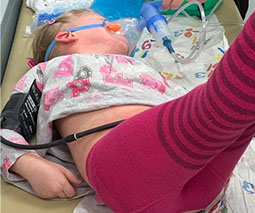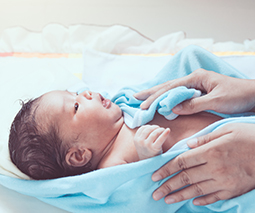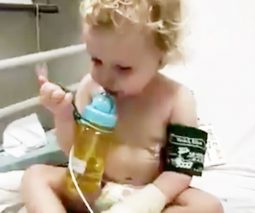What every parent needs to know about food allergies in children
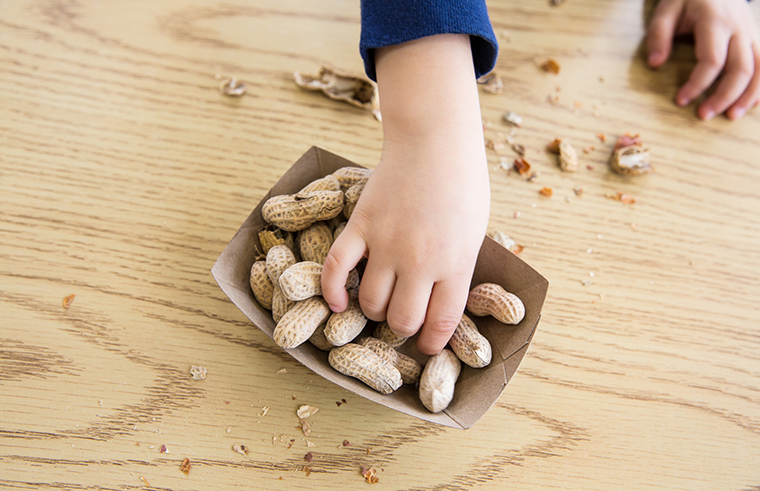
Heidi Young is a Clinical Nurse Specialist in childhood allergy and set up The Nest to help parents and carers manage allergies well. She explains why everyone needs to be educated about severe allergies.
An allergy is an allergy
In Australia, food allergies are estimated to affect between four and eight percent of children under five years of age. But what do parents – and the wider community – most need to know about the dangers of allergies?
Listen to Heidi Young on Feed Play Love:
“An allergy is an allergy,” Heidi says. “We often hear people say ‘my child is allergic to milk but anaphylactic to egg’ and that’s not right. If you have an allergy you have the ability to have anaphylaxis at any point.”
“So you can have like six allergic reactions of just hives and some redness and maybe you know, swollen eyes … and then the seventh time it can be anaphylaxis,” Heidi explains. “Then again, because you’ve had anaphylaxis once doesn’t necessarily mean you would have it again. But the trouble is, we don’t know.
“We don’t know if your child is going to be that one to have anaphylaxis. So any allergy should be taken seriously whether the child has previously had anaphylaxis or not.”
How can parents feel less frightened about their child’s allergies?
The prospect of anaphylactic shock is a scary one for parents of children with allergies, but Heidi says that knowledge truly is power.
“We try to teach parents to create awareness around their child,” Heidi explains. “It’s impossible to live in a world where you’re not exposed to things that your child’s allergic to. So what we need to do is we need other people around us to be aware of the allergies. We need to teach school children not to share food … We need to really just empower parents.”
Heidi says that being familiar with, rather than frightened of, the EpiPen is vital. The EpiPen works to give a lifesaving dose of adrenaline, relieving anaphylaxis within five minutes most of the time.
“The EpiPen is their friend. It’s not there to be scared of. It’s an extra dose of adrenaline, which your body kicks in and gives you anyway,” Heidi explains. “If your child does have anaphylaxis, it is very quick. But there’s also only a couple of things that you need to do to rectify it.”
What should you do if a child is having an allergic reaction?
If a child is having a serious allergic reaction such as anaphylaxis, what should parents do? Heidi says if symptoms are present you should do three things: “Hold the child, give the EpiPen and call the ambulance.“
Symptoms might include the following:
- Persistent cough
- Wheeze
- Vomiting
- Change in the voice
- Dizziness
- Pale and floppy
If in doubt, give the EpiPen
Heidi explained that there is no harm in giving the EpiPen and that it can’t do any damage. If in doubt, always administer the EpiPen.
“When you go into anaphylaxis, your body will release its natural adrenaline. But we’ve got the EpiPen as a top up. Sometimes anaphylaxis would rectify itself because of your own adrenaline, but we don’t know when it will and when it won’t,” Heidi said.
“So we must give that EpiPen as soon as we hear or see any of those symptoms, as a precaution. If for any reason you didn’t need the adrenaline then your body’s just going to get rid of it the same way as it would anything else … it knows what to do with adrenaline because we have it anyway.”
The EpiPen can be administered straight into the thigh, so that the dose goes into the muscle and that there is no need to look for a vein: “In the meaty part on the outside of the thigh,” says Heidi. “We would place the EpiPen against the thigh and push until it clicks. It will go through any clothing because it’s all about speed and ease.”
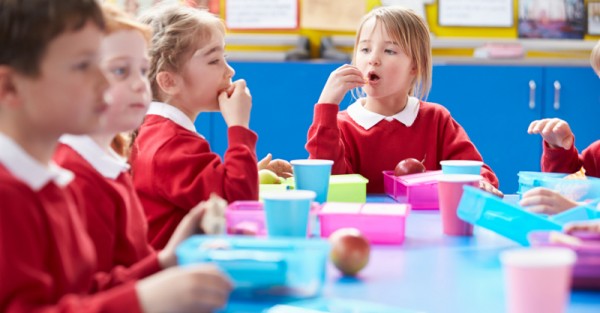
A little bit of that food won’t hurt, right? WRONG.
Heidi says it’s important that family members, friends and the community in general realise that even the tiniest amount of an allergen can cause a potentially life-threatening reaction.
“I’ve seen a child with this much egg, like the size of my little fingernail, need six doses of adrenaline and ICU admission because they had anaphylaxis that just wasn’t going away. So a little bit does hurt a child who has an allergy that’s severe.
[Perhaps] we didn’t know the child’s allergy was that severe – it comes out of the blue sometimes. But it is a major concern and all we can do is really try to educate the wider community.“
Heidi has also shared some excellent tips for throwing an allergy-friendly kids’ birthday party, which we urge all parents to read!
Start early, but not too early
Should we steer our babies away from foods that are likely allergy suspects? Heidi says absolutely not.
“There is research now to say for definite that if we get these common allergenic foods in as soon as we can – between four to six months, or whenever your child is ready, but not before four months – then that is reducing the rate of childhood allergy.
“What was happening was that a decade ago we were actually being told to avoid certain foods. Avoiding foods during pregnancy, don’t give your kid this until they are two or three,” she explained. “Well, that’s probably helped this climb in childhood allergies now. Even if there’s a family history of the allergy, there’s a lot of evidence to say now that getting in quicker and sooner is what we should be doing to reduce the allergy.”
If your healthy baby does start coughing and wheezing after eating a certain food for the first time and you suspect it could be an allergy, Heidi says don’t hesitate. Call an ambulance – it’s better to be safe than sorry.
Read more about allergies in children:
- Nut-free lunch boxes are everyone’s responsibility – so choose wisely
- 10 things all food allergy mums know to be true
- 10 things you probably believe about allergies that are totally wrong
- A new vaccine could soon stop peanut allergy in its tracks
- New expert advice says give babies peanut butter before 12 months
- Why everyone needs to be educated about severe allergies
- Does ‘spit cleaning’ your baby’s dummy help prevent future allergies?
- More allergy articles
Find more great stories and expert advice in the Feed Play Love podcast. Available in Apple Podcasts, Google Podcasts,Spotify or wherever you listen.
 Need some support to be the best parent you can be? Our Parent School parent coaching experts can help. Click to find out more or book a one-on-one session.
Need some support to be the best parent you can be? Our Parent School parent coaching experts can help. Click to find out more or book a one-on-one session.
